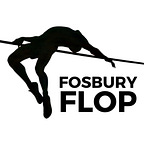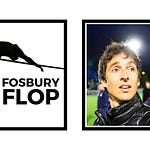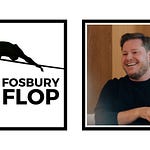You can enjoy this blog post by listening the podcast episode, or you can read it here, whichever is more convenient for you.
YouTube | Spotify | Apple Podcasts | iVoox | Google Podcasts | Amazon Music
This and the next post about learning and teaching wouldn’t have been possible if Albert Batalla —with his simplest explanations— hadn’t confronted me with my own stupidity. Thank you, Albert!
Why do we learn? How do our players learn? What happens within us that explains and defines what learning means? If I were to ask any of my co-workers these questions, I would get disappointment in the form of an answer. I imagine: “Because repeating becomes automatic”, “because the child learns the correct movement pattern” or “because after many hours of practice the player does it unconsciously”.
Soon after, I realized that I couldn’t give a very satisfactory answer either. We should be ashamed to devote ourselves to teaching and not know why or how the people we lead learn. It happens to me like when they asked St. Augustine: “What is time, then?” The Saint replied: “If nobody asks me, I know; but if I were desirous to explain it to one that should ask me, plainly I do not know.”
Tony Robbins says that “the quality of your life is the quality of your questions”. Jorge Wagensberg proclaimed that: “Changing the answer is evolution. Changing the question is revolution.” The following lines are the answer to the questions I asked myself a few weeks ago.
The Necessity of Naming —a salute to my friend Adrián— makes it difficult for us to talk about learning. How can such a complex process be described in a label? Throughout history, everyone knew what the color blue was, but no one would name the color blue until the 1850s. Our human design is playing a trick on us again: naming or labeling gives us security, control... and it’s not bad. We love —and need— to put labels to simplify a reality that otherwise overwhelms us with excess complexity. The problem comes when we end up paying more attention, stupidly, to the erroneous label than to the complex reality. It could be the fault of our amygdala, enemy of the unknown.
If we have to talk about learning, we cannot pay more attention to the connotations we have associated with the word than to the natural process it labels. If we focus the cliché on the first, we break with the principle that Popper imposed on himself: Never arguing about words and their meanings, because such arguments are specious and insignificant. Talking about learning is not talking about words and their meanings, but that these are the means to refer to an innate process that evolution has given us, humans. When we say learning, we’re trying to name a characteristic, faculty, adaptive trait —call it how you want… that doesn’t actually have a name. Darwin and his process of natural selection do not need it.
Evolution has given us two legs, and don’t we take it for granted? Do we have it associated with our identity? This is learning, an inseparable part of our way of being; it is not an act or a capacity that we have, it is what we are, what we repeatedly do.
The question “Why do we learn?” it’s poorly thought out. We learn because it is our way of being, because it is our evolutionary advantage. We don’t internalize it as much because it’s a trait we can’t see. Being able to change behavior according to the environment in which we find ourselves, to develop the skills we need, to make creative solutions emerge... is a huge evolutionary advantage. In short: Learning is a feature that we have as standard and that has placed us at the evolutionary peak. We learn because it is our way to adapt, to survive.
Learning is satisfying needs, solving problems, achieving goals. At the beginning, I would have said that learning is living better. Thinking of my dog Bàldric, it was impossible for me to falsify the hypothesis. But Bàldric will never handle a weapon in Afghanistan or make hard drugs —I hope. Don’t the people who do this learn, too? And dare we say they live better?
Then I reconsidered. I would dare to say that learning can be living better, but who decides what the word better means is the specific person who lives the learning in question. We must leave morality and ethics out of this debate. Learning is something that happens. You don’t have to judge everything as good or bad. Would-be terrorists learn... just like athletes or surgeons. If instead of living better, we talk about satisfying needs, solving problems, achieving goals that depend on the context... it becomes clearer. And, by the way, let’s avoid arguing about words and their meanings again.
Anyone who asks why we learn will never get a satisfactory answer. We learn because it is part of our way of being in this world. Since we know that we are always learning, that it is our way of being, that one cannot choose not to learn... we should change the question. Since learning is something that just happens, we should ask ourselves: “How do I want this person to change? Where do I want this player to evolve?” Or even: “How do I want to learn? Independently or according to what others tell me?”
We will never find an absolute answer. The individual response of each person will determine everything: the criterion of what is good and bad, the appropriate means to use. There is no better “universal” way for everyone to get learners to solve problems, satisfy needs, achieve goals. The best form depends on how each master, coach, teacher... wants their learner, player, student... to evolve.
Can knowing what goes on inside the head of the person who learns help us find an answer? If we know what happens inside the body of the person who learns, can we optimize learning? What mechanisms take place? We don’t have an answer... but let me doubt that we need to have it.
We learn spontaneously. The truest answer I’ve found is that it’s a black box phenomenon. We know the inputs that go into it, we can see what comes out... but we have no idea what happened inside the box. The problem is that we aren’t humble. The sight captures the product of learning, but we see neither what it has learned nor the mechanisms that caused it. You learn to ride a bike much earlier than to understand the physical principle that sustains you. But it’s no problem! We just have to be very careful when establishing correlations.
Did Piaget or Vygotsky come to consider analyzing neurology? No fucking idea, I don’t know if they needed it, though. The changes at the neurological level are not the end we must pursue, they are the consequence of having reached the end, of having learned. Does the good builder need to know the chemical processes that take place when making cement? Would knowing the reactions and resulting components of the process make him a better builder? It is not necessary to make big debates about small things.
Learning is something that happens, it’s something natural, it’s innate in people... and in the search for the mechanisms that cause it or that take place we get quite lost. With the little we know, how can those of us who dedicate ourselves to teaching face the learning process?
Teaching is helping to learn. To teach is to promote the search for solutions, the resolution of problems. Let’s go back to the grammar debate: learning and teaching are not the same —or even very similar—, one does not necessarily imply the other. One might think that they are synonyms. The truth is that, as we coaches, often, only bother, in most cases they become antonyms. The criterion of good teaching is the quality of learning. But beware, quality learning can emerge without the need of teaching! A player —whether he was born in Brazil or not— can solve problems and meet the needs of life and sport without anyone teaching him.
So, if learning is our way of life and we can do it without the need for teaching, why do coaches get in the way? We think that we are saviors, that we are indispensable... but, in reality, we just suck. If we would read a little bit... Since learning is something natural, teaching should be an option that we apply when there is no other choice.
And, if we have the guts to get in the way, at least we shouldn’t decide how the process should be. A teacher must generate situations with potential for learning, but don’t decide how this should be. Along the way, everyone creates their own path. Don’t get angry and boo them if they don’t follow your way. Don’t ask yourself “What are they doing wrong that doesn’t go my way?” The process of education —from Albert’s and my point of view— is not unidirectional from the teacher —who knows everything and thinks he is Superman without a cape— to a student who knows nothing and has the “world’s great luck” that this superhero in form of “teacher” tells him what to do. The highest aspiration should be to become invisible, not to think: “How lucky they are to have found me…”
“Learning results from what the student does and thinks and only from what the student does and thinks. The teacher can only promote learning by influencing what the student does and thinks.”
—Herbert A. Simon
The coach does not cause learning, he only provides an optimal environment for learners to achieve it. Players don’t learn from the coach. In fact, they often learn despite the coach. And in many other cases, they don’t learn because of the coach. Because coaches, teachers... we are so stupid that we think we are the protagonists of the learning process of others. We took our jobs too seriously. We would do better if we assumed that they can learn without us; that we are not generators of learning, we are non-disruptors of learning. We just have to take care not to screw it up... and look how hard it is!
Players, children... are learners by nature. They are born with and because of this, it is innate in their human design. We must strive to create learning situations that do not go against learning. If the situations are wrong, we generate in the learners a feeling of ineffectiveness, mistrust... which is our fault. The players are not bad at it. We are the ones who have not been able to create optimal learning situations.
World War III begins, conflict breaks out, sparks fly... when the players’ innate tendency to learn meets worlds “created” by humans, with culturally valued skills. The players learn because it is their way of being, but the coach wants to teach them what is culturally “right”. We (mis)fit natural learnings as if they were cultural.
Because one can (mis)think that there are biological skills that are learned innately and other cultural ones that must be taught, that cannot be learned spontaneously or autonomously. Because humans will run, play... like dogs do; but we will also do sport, which no animal will ever experience. Animals only learn what is “specific” to their species. No animal will be startled by a technique... like we do. We, humans, are able to create these worlds that are far away —or rather, different— from the rest of the animal species.
But it does not mean that these worlds are not specific to our species: what is biological in the human being is to be cultural. We learn alone to walk because it is biological and to play a sport we have to be taught because it is cultural? No! Don’t believe the coach who wants to steal your money. It is not necessary to separate biology from culture, because culture is the way in which we as people give way to biological needs. For protection from the cold we make fashion, for nutrition we make gastronomy, for the need to perpetuate the species we make sexuality, for ancestral nature to move we make sport.
The coach can choose not to intervene because learning can emerge without him. But if he wants the player to learn what is culturally specified... that’s when he feels he has to intervene. If the coach believes that the skills are a list of movements that the player must know how to do in order to start competing... he sees himself as a “savior” and believes that his intervention is indispensable. The player could learn to solve that specific situation, but what the coach wants is for him to solve it and, on top of that, in the way he thinks is appropriate.
Assuming this, the wonderful game between intervening and not intervening begins. Keep in mind that you are not paid to intervene, or to shout, or to give instructions. They pay you to make players learn, to make them play better. Maybe, even, to win. But what better way to win than learning?
Think about it.
And if you think you have no choice but to intervene... in the next post we will analyze how to do it so that your players learn thanks to your intervention, not in spite of it.
Martí Cañellas | Fosbury Flop
Continue reading —or listening— now the second post in the series on learning and teaching clicking on the following link:
Fosbury Flop is for the people, by the people. If it brings you value and you want to support the project, you can help to make it possible recommending it to a friend or upgrading your subscription.












